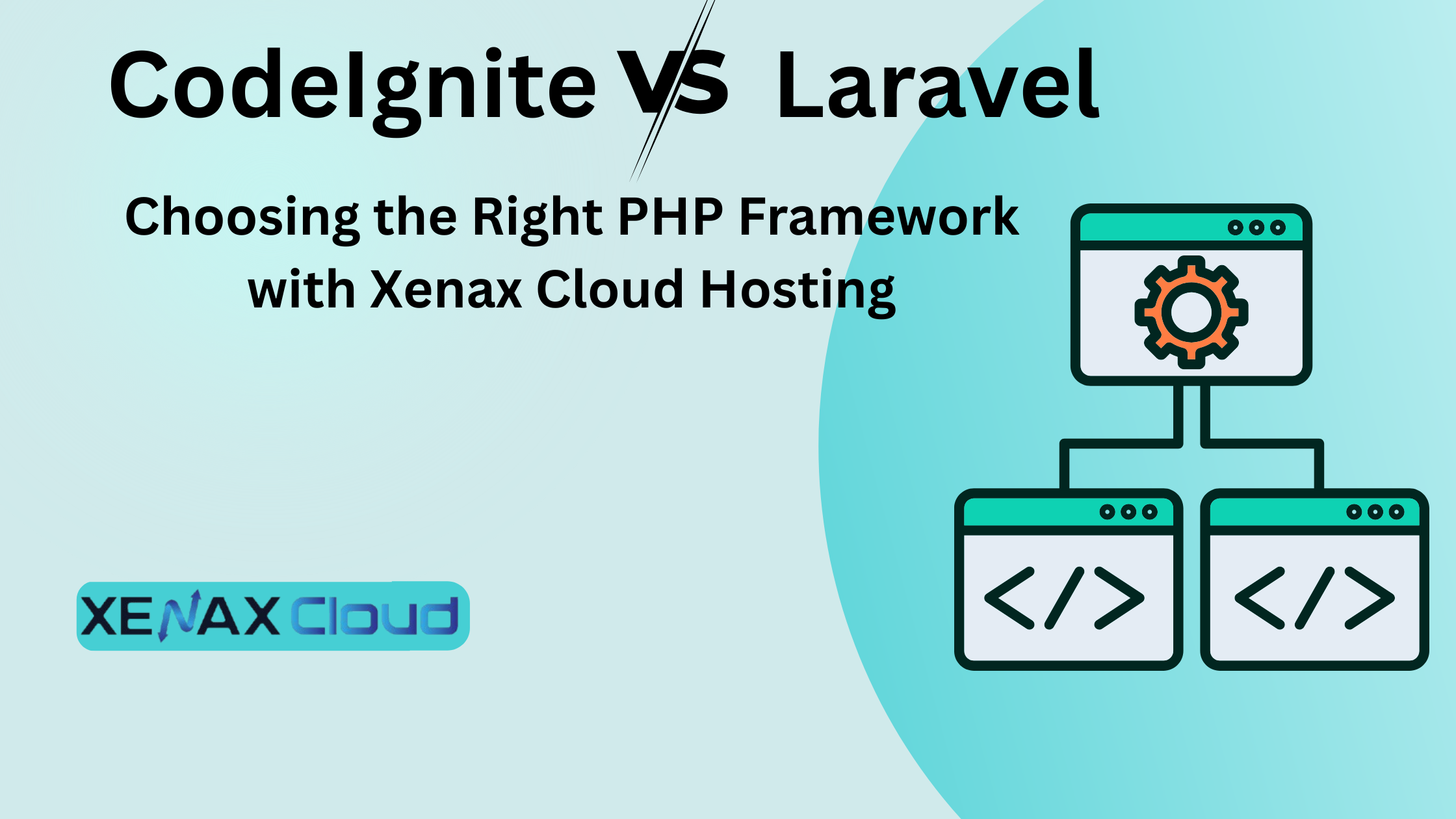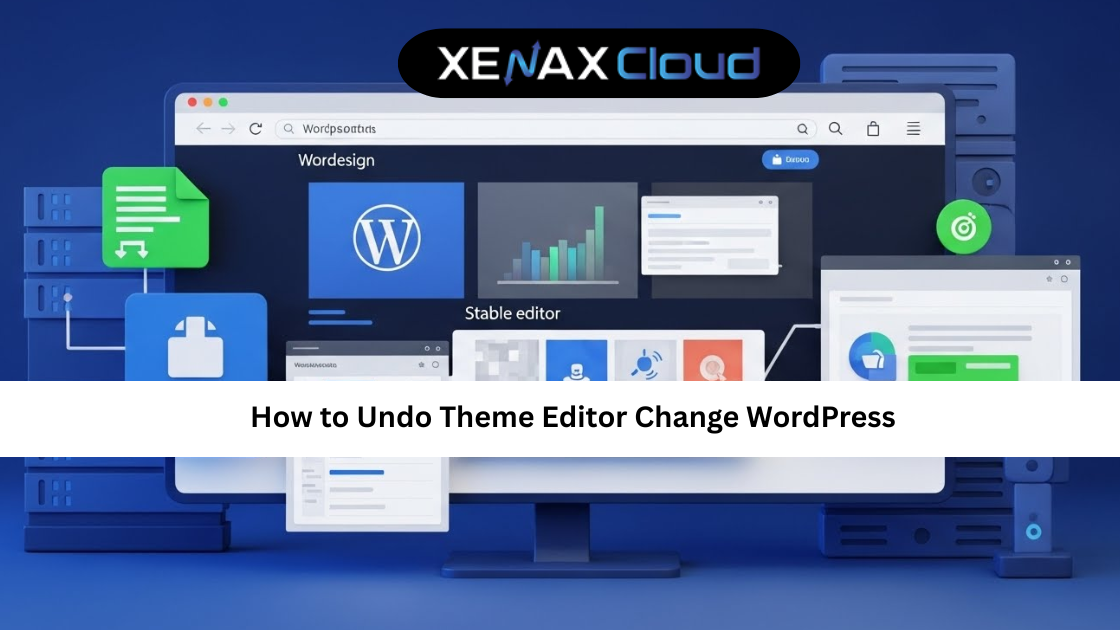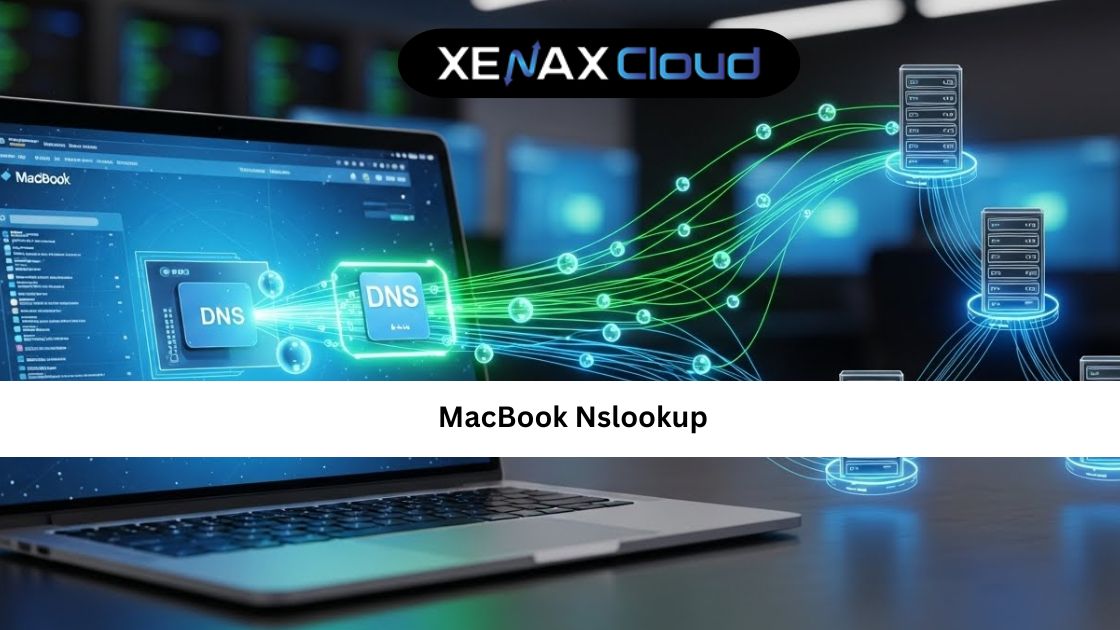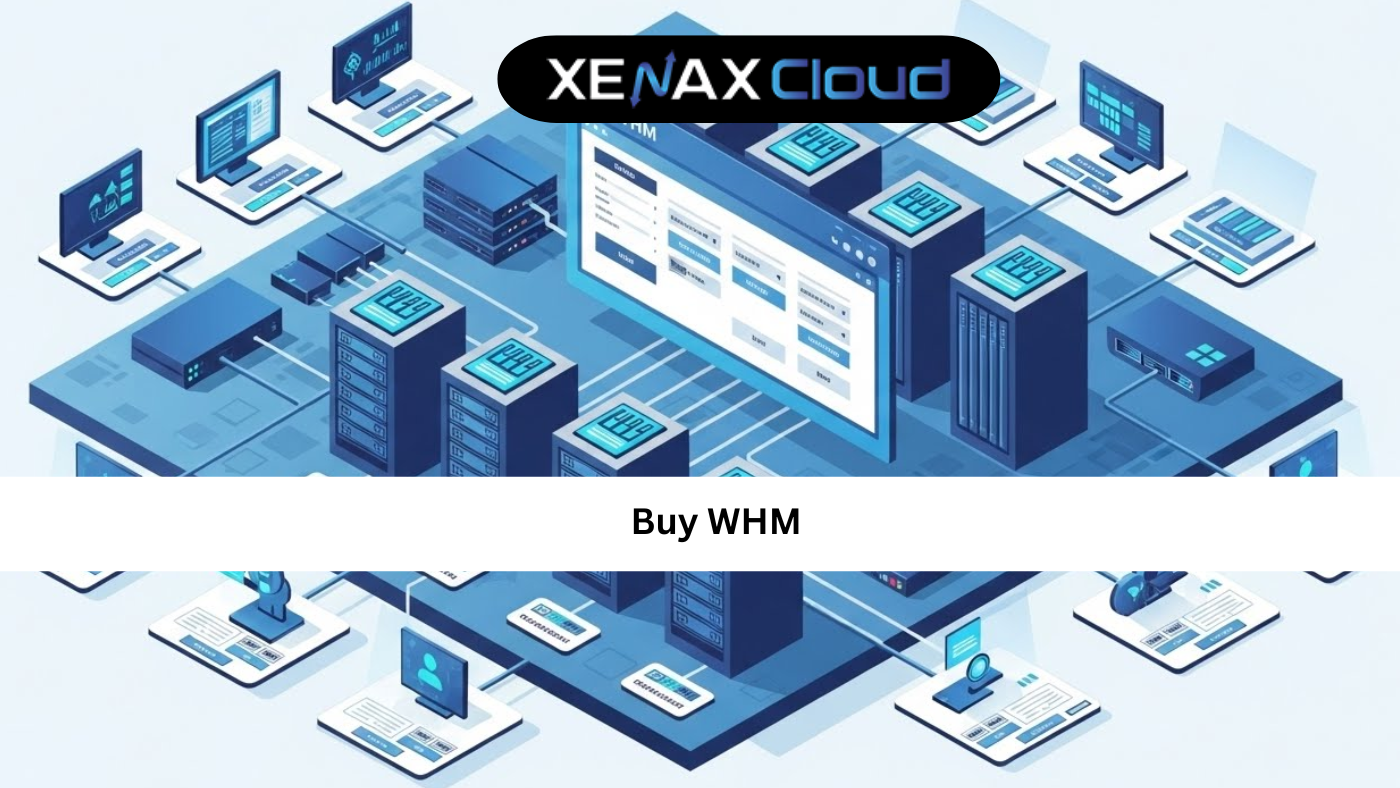CodeIgniter vs Laravel: Ultimate Guide to Choosing the Right PHP Framework with XenaxCloud
Hey there, developers! If you’re diving into PHP web development, the CodeIgniter vs Laravel debate is probably on your radar. Both are stellar PHP frameworks, but they cater to different vibes—think of CodeIgniter as the nimble sprinter and Laravel as the feature-packed marathon runner. Choosing the right one depends on your project’s needs, and hosting it on a reliable platform like XenaxCloud, with our India-based data centers, makes all the difference. Whether you’re building a quick blog or a full-blown SaaS app, XenaxCloud’s shared hosting, VPS, RDP, dedicated servers, domains, and reseller hosting have got you covered. Let’s break down CodeIgniter vs Laravel, touch on PHP vs JavaScript, and show why XenaxCloud is your go-to for hosting PHP apps in India.
Why the CodeIgniter vs Laravel Debate Matters
PHP powers over 70% of websites (think WordPress, Drupal), and frameworks like CodeIgniter and Laravel make development faster and cleaner. But picking the wrong framework—or hosting it on a subpar server—can slow you down. XenaxCloud’s India-based servers ensure low-latency, high-speed performance, perfect for Indian developers building apps for local or global audiences. Let’s dive into what makes each framework tick and how XenaxCloud optimizes them.
CodeIgniter: The Lightweight Champ
CodeIgniter is like that friend who gets the job done without any fuss. It’s a lightweight PHP framework (just ~2MB) built for speed and simplicity. If you’re working on small to medium projects—like a blog, portfolio, or e-commerce store—CodeIgniter’s minimal setup and fast execution are hard to beat. It’s perfect for XenaxCloud’s shared hosting, which offers one-click PHP setup, LiteSpeed servers, and free SSL for secure, speedy apps.
Why Choose CodeIgniter?
- Blazing Fast: Minimal overhead means quicker load times, ideal for low-resource environments.
- Beginner-Friendly: Simple MVC structure and clear documentation make it easy to learn.
- Flexible: No rigid rules, so you can code your way.
- Low Resource Needs: Runs smoothly on affordable plans like shared hosting.
CodeIgniter Drawbacks
- Limited advanced features (e.g., no built-in ORM or authentication).
- Smaller community compared to Laravel, so fewer plugins and tutorials.
Best Use Cases
- Small e-commerce sites or blogs.
- Rapid prototyping for startups.
- Projects where performance trumps complexity.
Laravel: The Feature-Packed Powerhouse
Laravel is the rockstar of PHP frameworks, built for developers who want it all—features, scalability, and elegance. It’s perfect for complex apps like SaaS platforms, CRMs, or enterprise systems. With tools like Eloquent ORM, Blade templating, and Artisan CLI, Laravel streamlines development but needs more resources. XenaxCloud’s VPS hosting and dedicated servers are tailor-made for Laravel’s demands, offering SSD storage, scalability, and robust security.
Why Choose Laravel?
- Rich Ecosystem: Built-in tools for authentication, caching, and database management.
- Eloquent ORM: Simplifies database queries with an intuitive syntax.
- Scalability: Handles high-traffic apps with ease.
- Huge Community: Tons of tutorials, packages, and support.
Laravel Drawbacks
- Steeper learning curve for newbies.
- Higher resource demands, requiring powerful hosting like VPS.
Best Use Cases
- Large-scale SaaS or enterprise apps.
- Projects needing advanced features like user authentication or APIs.
- Apps expecting heavy traffic or growth.
CodeIgniter vs Laravel: Head-to-Head Comparison
Let’s break it down to help you choose:
- Performance: CodeIgniter’s lightweight design wins for speed, especially on shared hosting. Laravel, while slower due to its features, shines on VPS or dedicated servers.
- Scalability: Laravel’s architecture is built for growth, making it ideal for apps that need to scale. CodeIgniter works for smaller projects but may need custom tweaks for large-scale apps.
- Ease of Use: CodeIgniter’s simplicity is great for beginners or quick projects. Laravel’s advanced tools require more expertise but save time on complex tasks.
- Features: Laravel’s built-in tools (e.g., authentication, ORM) outshine CodeIgniter’s minimal approach.
- Community: Laravel’s massive community offers more resources than CodeIgniter’s smaller one.
- Hosting Needs: CodeIgniter runs smoothly on budget-friendly shared hosting. Laravel needs VPS or dedicated servers for optimal performance.
PHP vs JavaScript: Where Do These Frameworks Fit?
The PHP vs JavaScript debate often pops up when choosing tech stacks. PHP, the backbone of CodeIgniter and Laravel, is a server-side language, excelling in backend logic, database interactions, and dynamic content. JavaScript, often used with Node.js or frontend frameworks like React, is versatile for both frontend and backend but requires more setup for server-side tasks. For PHP developers, XenaxCloud offers optimized PHP environments with the latest versions (PHP 8.2+), perfect for CodeIgniter vs Laravel projects. We also support Node.js for JavaScript-based apps, making us a one-stop shop for Indian developers.
PHP Strengths
- Robust for server-side development.
- Seamless database integration (MySQL, PostgreSQL).
- Mature ecosystem with frameworks like CodeIgniter and Laravel.
JavaScript Strengths
- Great for interactive frontends (e.g., React, Vue.js).
- Node.js enables server-side development.
- Flexible but may need more configuration than PHP.
XenaxCloud’s hosting supports both, with LiteSpeed servers boosting PHP performance and Node.js compatibility for JavaScript apps. Our India-based data centers ensure low-latency delivery, critical for Indian users.
Why Host Your PHP Apps with XenaxCloud?
XenaxCloud’s hosting is built for developers, with India-based servers that deliver speed, reliability, and security. Here’s why we’re the best choice for CodeIgniter vs Laravel projects:
- Optimized PHP Environments: Pre-installed PHP 8.2+, MySQL, and Composer for seamless framework setup.
- 99.5% Uptime: Your apps stay online, even during traffic spikes.
- LiteSpeed Servers: Up to 10x faster than Apache, perfect for PHP frameworks.
- Security: Free SSL, DDoS protection, and malware scanning keep your apps safe.
- 24/7 Support: Our team, fluent in Hindi, Tamil, and more, is available round-the-clock.
- Free Migration: Switch to XenaxCloud without downtime or hassle.
- Scalability: From shared hosting for CodeIgniter to VPS and dedicated servers for Laravel, we grow with you.
XenaxCloud’s Hosting Solutions
- Shared Hosting: Starting at ₹99/month, shared hosting is perfect for CodeIgniter apps, with cPanel, free SSL, and one-click installs.
- VPS Hosting: VPS offers dedicated resources for Laravel apps, with SSD storage and full root access.
- Dedicated Servers: Dedicated servers handle high-traffic Laravel apps with exclusive resources.
- RDP Hosting: Manage your apps remotely with RDP, ideal for dev teams.
- Reseller Hosting: Start your own hosting business with reseller hosting, featuring white-label cPanel/WHM.
- Domain Registration: Secure your app’s identity with domains and free privacy protection.
How to Choose Between CodeIgniter and Laravel
- Project Size: CodeIgniter for small, fast apps; Laravel for complex, scalable systems.
- Team Expertise: Beginners love CodeIgniter’s simplicity; experienced devs leverage Laravel’s tools.
- Budget: Shared hosting for CodeIgniter is budget-friendly; Laravel may need VPS.
- Traffic Expectations: Laravel handles high traffic better, especially on dedicated servers.
- Development Speed: CodeIgniter for quick setups; Laravel for feature-rich apps.
Why India-Based Hosting Matters
Hosting with XenaxCloud’s India-based data centers cuts latency, boosting SEO and user experience. Studies show a 1-second delay can reduce conversions by 7%. For Indian developers, local hosting ensures compliance with data regulations and faster load times for local audiences.
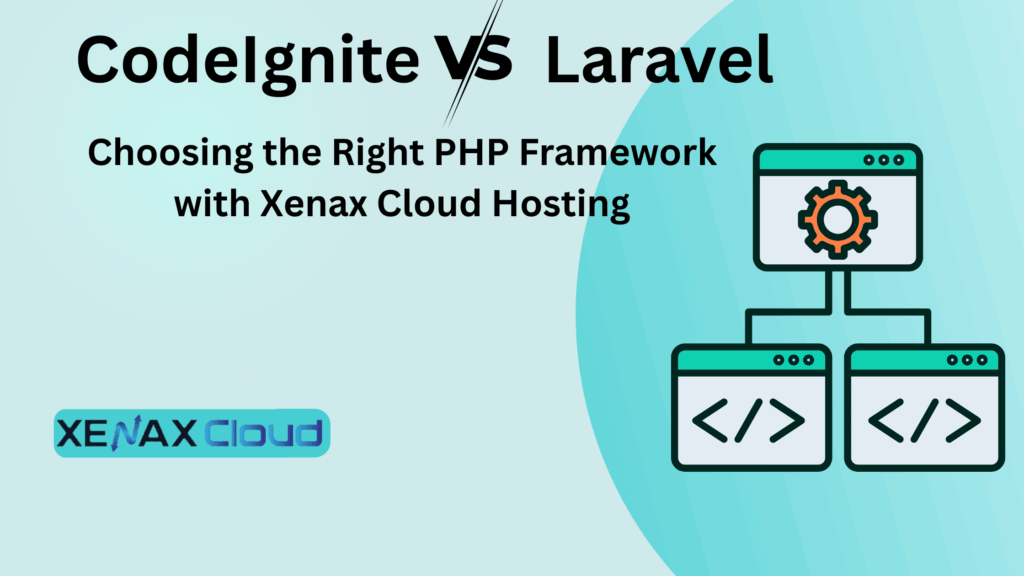
FAQs
1. Which framework is better for small projects: CodeIgniter or Laravel?
CodeIgniter is ideal for small projects due to its lightweight design and low resource needs, perfectly suited for XenaxCloud’s shared hosting.
2. Can XenaxCloud handle Laravel’s resource demands?
Yes! Our VPS and dedicated servers provide the power and scalability Laravel needs for complex apps.
3. How does XenaxCloud optimize for CodeIgniter vs Laravel?
We offer optimized PHP environments, LiteSpeed servers, and free SSL, ensuring top performance for both frameworks.
4. What’s the difference between PHP vs JavaScript for web apps?
PHP excels in server-side logic (CodeIgniter, Laravel), while JavaScript is versatile for frontend and backend (Node.js). XenaxCloud supports both.
5. Can I start a hosting business with XenaxCloud?
Yes, our reseller hosting lets you sell hosting under your brand with cPanel/WHM.
6. How do I secure a domain for my app?
XenaxCloud’s domain registration offers affordable TLDs with free privacy protection.
Conclusion
The CodeIgniter vs Laravel choice boils down to your project’s scope and goals. CodeIgniter shines for fast, lightweight apps, while Laravel powers complex, scalable systems. XenaxCloud’s India-based hosting, from shared hosting to dedicated servers, ensures your PHP apps run smoothly. Need remote management? Try RDP. Want to start a hosting business? Check out reseller hosting. Secure your domain with domains. Visit xenaxcloud.com to kickstart your PHP project with the best hosting in India!

